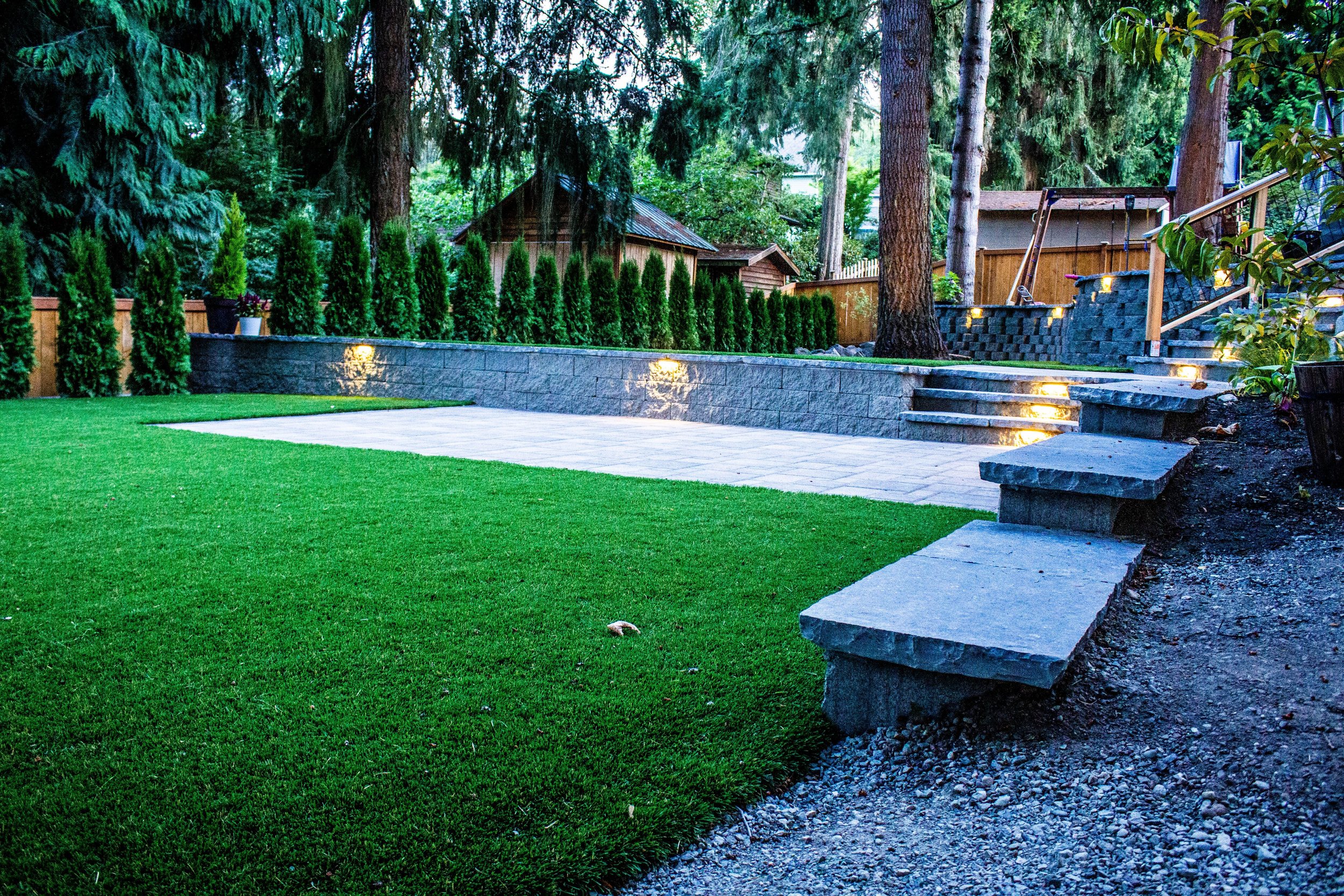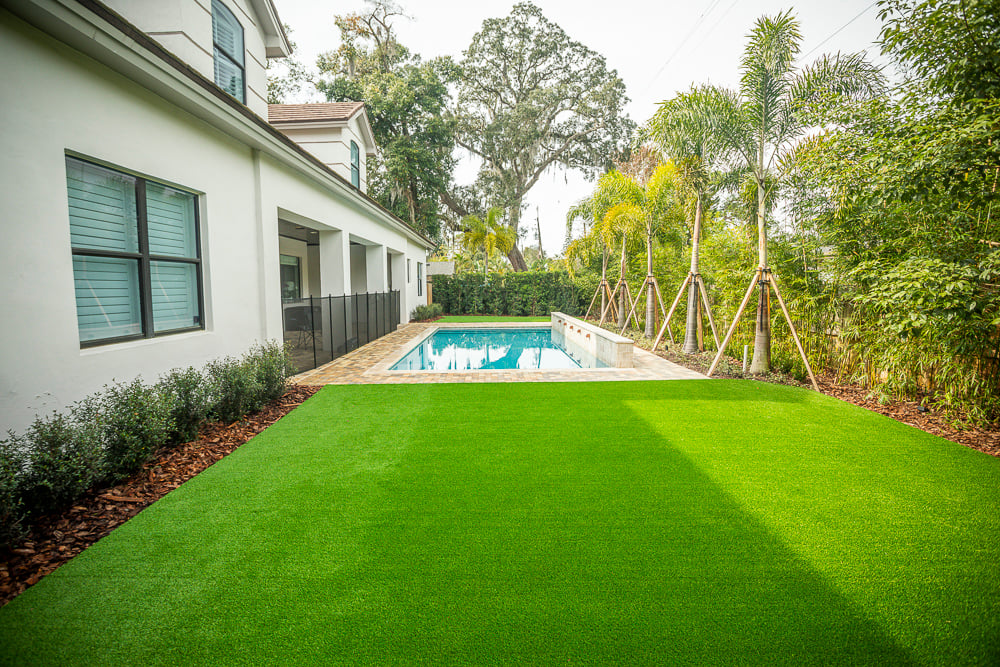Best Phoenix Turf Companies Delivering High-Quality Synthetic Grass Solutions
Best Phoenix Turf Companies Delivering High-Quality Synthetic Grass Solutions
Blog Article
Explore the Environmental Perks of Opting for Synthetic Grass Solutions
The fostering of synthetic lawn services presents a compelling chance to deal with pushing environmental difficulties. By dramatically minimizing water use and reducing the application of hazardous chemicals, these options not just promote sustainable landscaping however also safeguard local environments. The lower carbon impact associated with reduced maintenance tasks adds to a more lasting method to land management. The effects of these benefits extend beyond plain preservation efforts, raising inquiries about their long-term effect on habitat conservation and general environmental equilibrium. Exploring these measurements reveals a complicated interaction worth taking into consideration.
Water Conservation Advantages
One of the most considerable advantages of synthetic turf is its ability to conserve water. In comparison, man-made grass does not need watering, dramatically reducing the total demand for water resources.
By eliminating the need for normal watering, synthetic grass adds to lasting landscape techniques and helps reduce the environmental influence of excessive water intake. Additionally, the conservation of water reaches the reduction of runoff, which can lead to dirt erosion and waterway pollution.
In addition, the installment of synthetic grass permits home owners and towns to designate water resources a lot more successfully, concentrating on crucial usages such as drinking water and agriculture. The shift towards synthetic grass not just promotes liable water usage but additionally lines up with more comprehensive ecological objectives focused on preserving all-natural resources.
As neighborhoods progressively prioritize sustainability, the water conservation advantages of synthetic grass present a compelling situation for its fostering in household and industrial landscaping jobs.
Decreased Chemical Usage
The change to synthetic grass dramatically lowers the reliance on chemical therapies commonly made use of in natural turf maintenance. Conventional lawn monitoring typically includes the application of plant foods, pesticides, and herbicides to advertise development and control bugs. These chemicals can posture risks to human health, neighborhood wildlife, and the atmosphere, contributing to dirt and water contamination.
In contrast, man-made grass gets rid of the demand for these dangerous substances. By reducing the launch of synthetic compounds into the community, fabricated lawn promotes much healthier dirt and water systems.
Moreover, the absence of chemical overflow related to synthetic grass setups assists protect regional rivers from pollution, sustaining aquatic life and maintaining biodiversity. Phoenix turf companies. As communities significantly prioritize lasting practices, deciding for fabricated grass presents a feasible remedy that straightens with environmental conservation objectives. Through this shift, homeowner can enjoy lush environment-friendly areas without jeopardizing eco-friendly health, leading the way for a more sustainable future
Lower Carbon Footprint

Moreover, the installation of synthetic turf can lead to substantial water conservation. All-natural grass call for substantial quantities of water for irrigation, which not just adds to the carbon impact connected with water removal and therapy but additionally pressures local water resources. On the other hand, synthetic grass requires marginal maintenance, requiring no watering, consequently dramatically reducing water usage and its linked power expenses.
Additionally, the durability of synthetic grass adds to its reduced carbon impact. With a lifespan of approximately 15 years or even more, the demand for regular substitutes is decreased, causing much less waste and reduced power usage in production and dealing with traditional grass alternatives. Overall, man-made lawn presents a sustainable choice for ecologically mindful landscaping.
Habitat Conservation
Environment preservation is a vital consideration in the argument over landscape design selections, especially when contrasting synthetic grass to natural turf. All-natural lawn lawns typically require comprehensive maintenance, including the usage of pesticides, Get More Info plant foods, and herbicides, which can adversely impact regional ecological communities. These chemicals can leach into the dirt and rivers, damaging native vegetation and fauna and interrupting local habitats.
In comparison, man-made lawn offers a possibility to reduce the ecological impact of landscaping. By selecting artificial turf, homeowners can minimize the disruption of natural habitats associated with conventional grass treatment practices. Synthetic grass eliminates the need for unsafe chemicals, thereby safeguarding nearby wildlife and maintaining the honesty of surrounding ecological communities. The installment of synthetic turf can lead to the conversion of previous yard areas right into even more biodiverse landscapes, such as pollinator gardens or indigenous plant areas, which can support regional wildlife.
Inevitably, the change to synthetic grass not only conserves water and lowers maintenance initiatives however additionally promotes a much more harmonious partnership in between human tasks and the natural surroundings, promoting habitat conservation in the procedure.
Long-Term Sustainability
Lasting sustainability is an essential consider examining the advantages of synthetic grass over standard turf lawns. Among the most substantial advantages of man-made lawn is its resilience; it can last up to 15-20 years with minimal maintenance, whereas natural grass calls for constant reseeding and replacement. This longevity lowers the demand for consistent sources, such as water, plant foods, and chemicals, which are crucial for maintaining a healthy yard yard.
Additionally, man-made lawn adds to a decrease in carbon emissions connected with yard care equipment. Typical lawns commonly require gas-powered mowers, trimmers, and blowers, every one of which add to air contamination. Phoenix turf companies. In contrast, synthetic grass eliminates the demand for such devices, go to these guys advertising a cleaner environment
In addition, the production of artificial lawn increasingly uses recycled products, boosting its sustainability account. As producers adopt environmentally friendly practices, the ecological impact of synthetic grass proceeds to diminish.

Final Thought
The fostering of synthetic grass services offers significant ecological advantages, including substantial water preservation, decreased dependence on hazardous chemicals, and a reduced carbon impact. Furthermore, synthetic grass help in maintaining all-natural environments by reducing land disruption and promoting lasting sustainability with using long lasting products. Jointly, these variables highlight the possibility of synthetic grass to contribute positively to ecological health and use a feasible alternative to traditional landscaping methods in a progressively resource-conscious globe.
In contrast, fabricated lawn does not need watering, dramatically lowering the overall demand for water sources. By minimizing the release of synthetic compounds right into the community, man-made grass promotes much healthier soil and basics water systems.
Additionally, the installment of artificial lawn can result in considerable water preservation. In contrast, synthetic turf needs minimal upkeep, needing no watering, thereby dramatically lowering water use and its associated power expenses.

Report this page